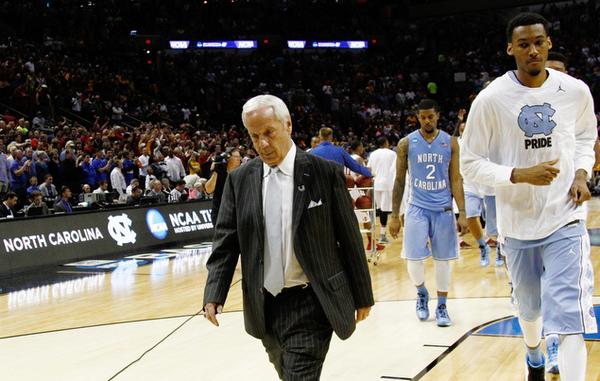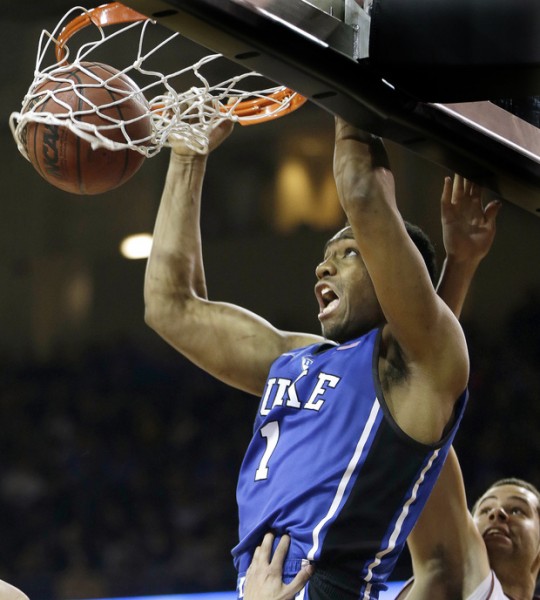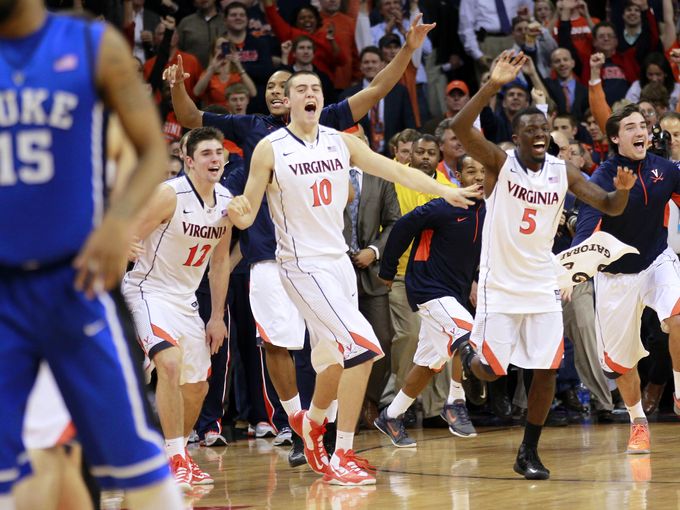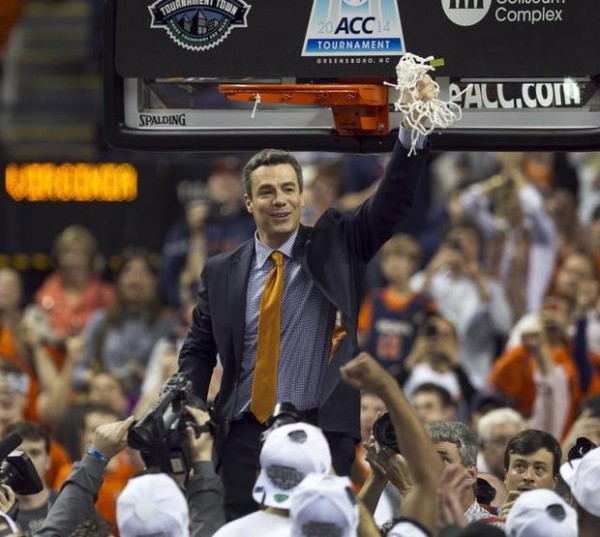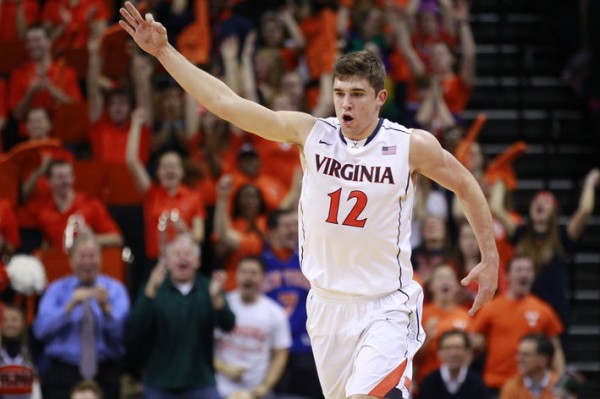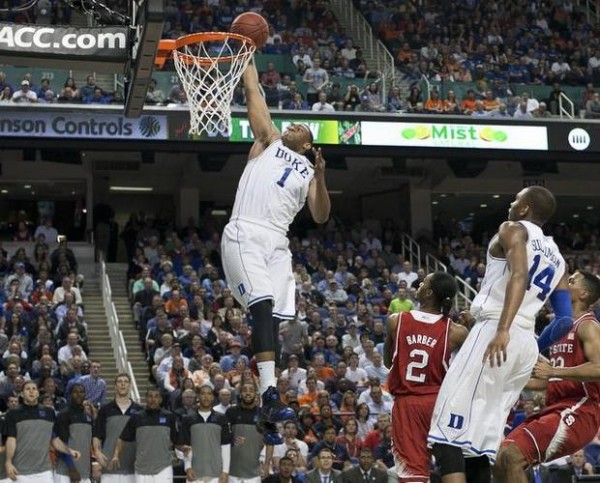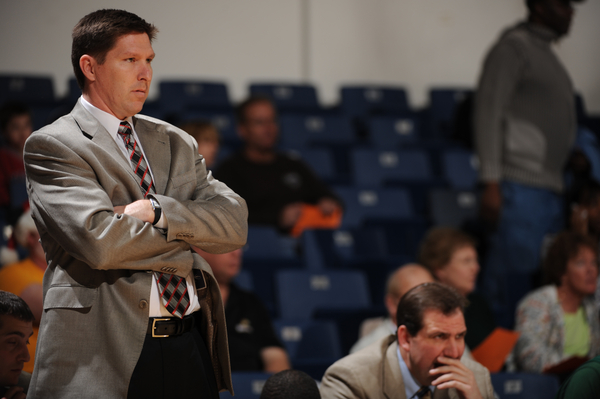2013-14 Rush the Court All-America Teams
Posted by Walker Carey on April 1st, 2014Compiling preseason All-America teams is a difficult task because nobody knows what is going to occur during the season. There will always be players who will fail to live up to expectations and there will always be under the radar types who will unexpectedly emerge to stardom. When our group of eight RTC pollsters selected their preseason All-America teams back in November, nobody could have guessed that only six of the 15 names on that list would live up to the hype: Creighton’s Doug McDermott, Louisville’s Russ Smith, Kansas’ Andrew Wiggins, Duke’s Jabari Parker, Connecticut’s Shabazz Napier, and Kentucky’s Julius Randle. The only two players that were projected to to be a first team All-America and finished there were McDermott and Smith (actually, we recognized at the time that a 33 percent accuracy rate was the AP’s historical norm, so we did a little better than that). The nine players we selected as preseason All-Americans who did not make our team — Oklahoma State’s Marcus Smart, Michigan State’s Gary Harris, Ohio State’s Aaron Craft, Michigan’s Mitch McGary (spent much of the year injured), Arizona State’s Jahii Carson, Arizona’s Aaron Gordon, Syracuse’s C.J. Fair, Michigan State’s Adreian Payne, and Virginia’s Joe Harris — all had exceptional seasons, but they were surpassed in achievements by the names that rose to the top of our list. Here are the 2013-14 RTC All-America Teams.
Note on methodology: voters took postseason performance to date into consideration. Players earned three points for a First Team vote, two points for a Second Team vote, and one point for a Third Team vote. McDermott and Napier were the only two consensus First Team All-America selections. Coming tomorrow: The RTC Coach of the Year.
First Team All-America
- Doug McDermott, Senior, Creighton (consensus) (26.7 PPG, 7.0 RPG, 52.6% FG, 44.9% 3FG). McDermott was the most prolific and talented offensive player in the country in a season that wrapped up his marvelous collegiate career. The senior led the country in scoring and his brilliant play was the biggest reason why Creighton finished the season with a sterling 27-8 record. The brilliance of “Dougie McBuckets” saw him reach several amazing career milestones this year. His career-high 45 points in March 8’s Senior Night victory over Providence put him over the 3,000-point barrier, and he wound up finishing with 3,150 points, good for fifth on the all-time scoring list. There have been few players like Doug McDermott in college basketball history, and there will be few like him in the future. He was an amazingly unique talent that we were all privileged to watch play ball for the last four years.
- Shabazz Napier, Senior, Connecticut (consensus) (18.1 PPG, 4.9 APG, 5.9 RPG, 1.7 SPG). You can make an argument that no player has meant more to his team this season than Napier has meant to Connecticut. The Huskies improbably took home the East Region title and are headed to the Final Four, thanks in large part to the heroics of Napier. After a sensational regular season where the guard took home the AAC Player of the Year award, he has only elevated his play in the postseason. In the Huskies’ four NCAA Tournament victories, Napier is averaging 23.3 points per contest and has displayed his flare for the dramatic by hitting several important shots when his team needed them most. Connecticut won a national title in 2011 mostly due to the brilliance of then-point guard and NPOY Kemba Walker. If the Huskies are able to replicate that feat this season, it will be mostly due to the brilliance of Napier.
- Jabari Parker, Freshman, Duke (22) (19.1 PPG, 8.7 RPG, 1.2 BPG, 47.3% FG). In a season when many freshmen around the country received a great deal of preseason hype, no other freshman lived up to the lofty expectations quite like Parker. The USBWA National Freshman of the Year became the first Duke freshman to earn consensus first-team All-America honors with selections to the AP and Wooden All-America teams. It is widely expected that Parker will enter the 2014 NBA Draft after just one season in Durham, and even though his Duke career did not include an NCAA Tournament victory, Parker’s terrific season will not soon be forgotten.
- Russ Smith, Senior, Louisville (22) (18.2 PPG, 4.6 APG, 2.0 SPG, 46.8% FG). “Russdiculous” entered the season with high expectations and he more than lived up them by leading Louisville to another terrific campaign. After an excellent junior season, Smith only improved as a senior. Known for erratic decision-making much earlier in his career, the talented guard reinvented himself during his senior season. Smith improved his field goal percentage from by five percentage points and his three-point percentage from by six points. That brilliance led a spot as Louisville’s first consensus All-American since Clifford Rozier in the 1993-94 season.
- Sean Kilpatrick, Senior, Cincinnati (19) (20.6 PPG, 4.3 RPG, 42.3% FG, 84.5% FT). Kilpatrick finished his outstanding collegiate career with legendary Cincinnati status, as he joined NBA Hall of Famer Oscar Robertson as the only two Bearcats to top 2,000 career points. Along with joining Robertson in the Cincinnati record books, Kilpatrick also became the program’s all-time leader in games (140) and career minutes played (4,315). The elevation in Kilpatrick’s play as a senior also meant great things for an overachieving Cincinnati squad that was the co-AAC champion and was ranked #15 in the final AP poll.






























